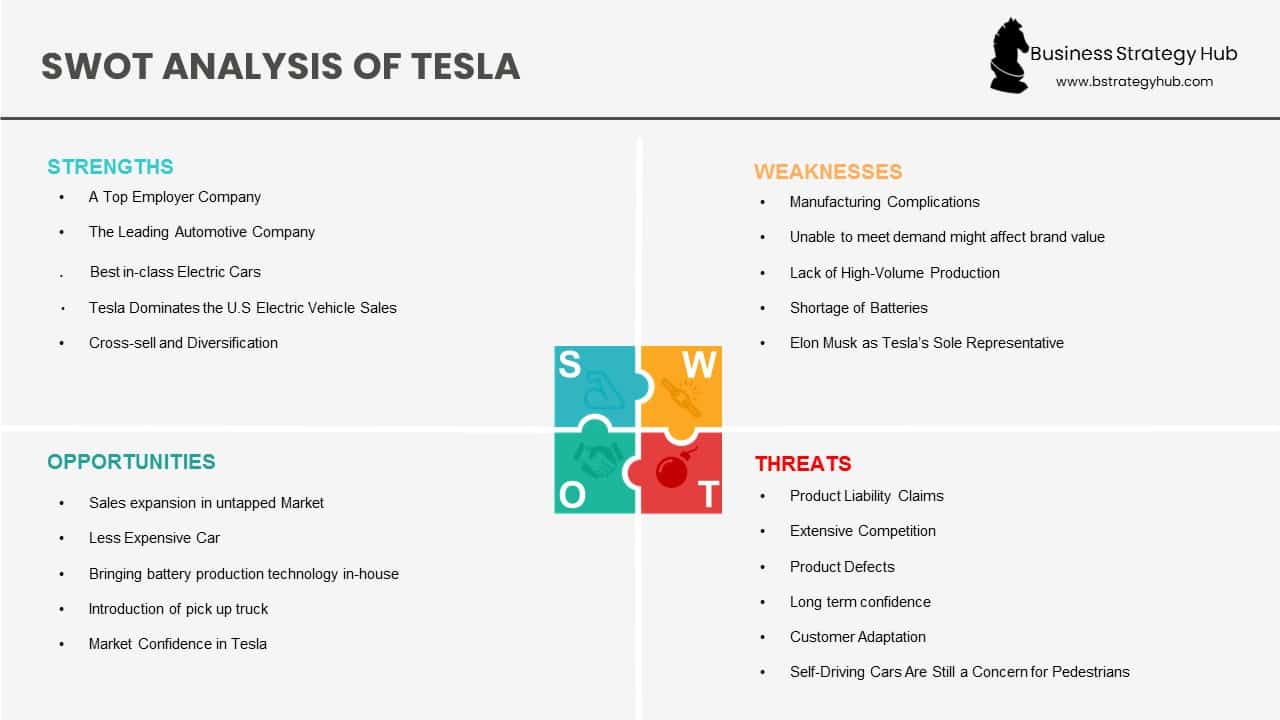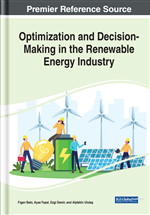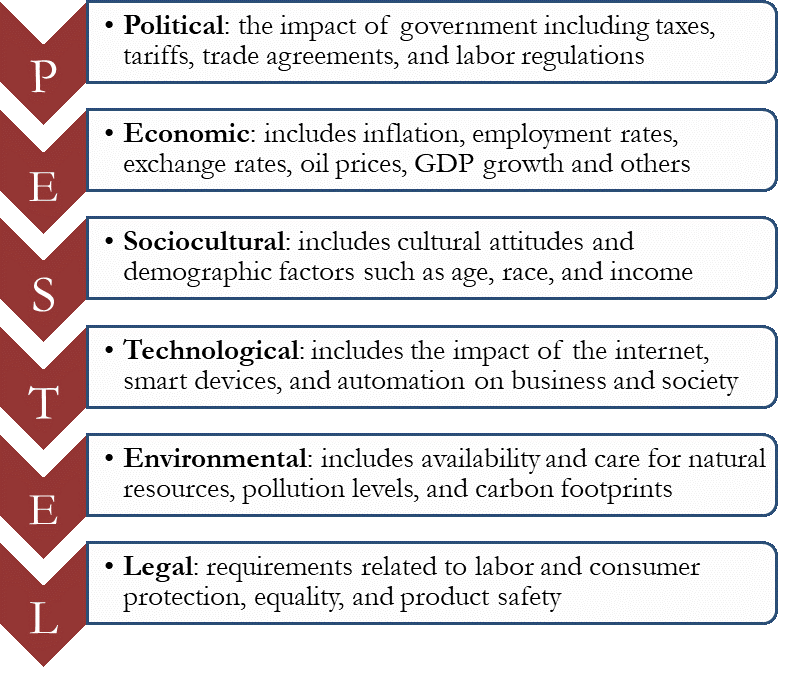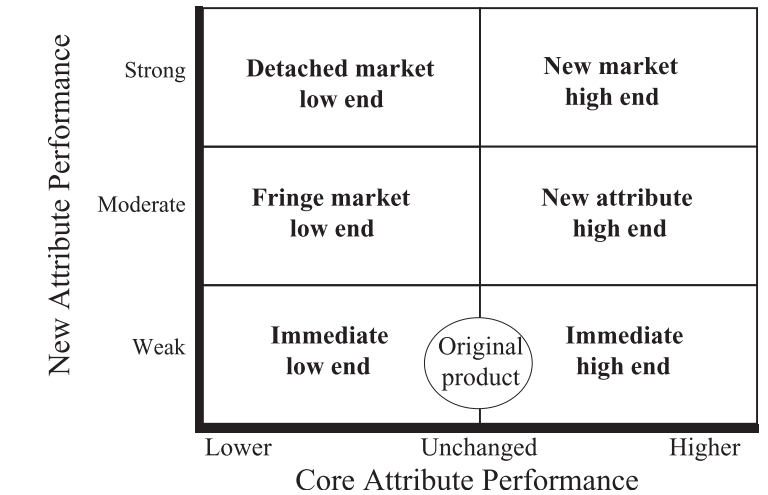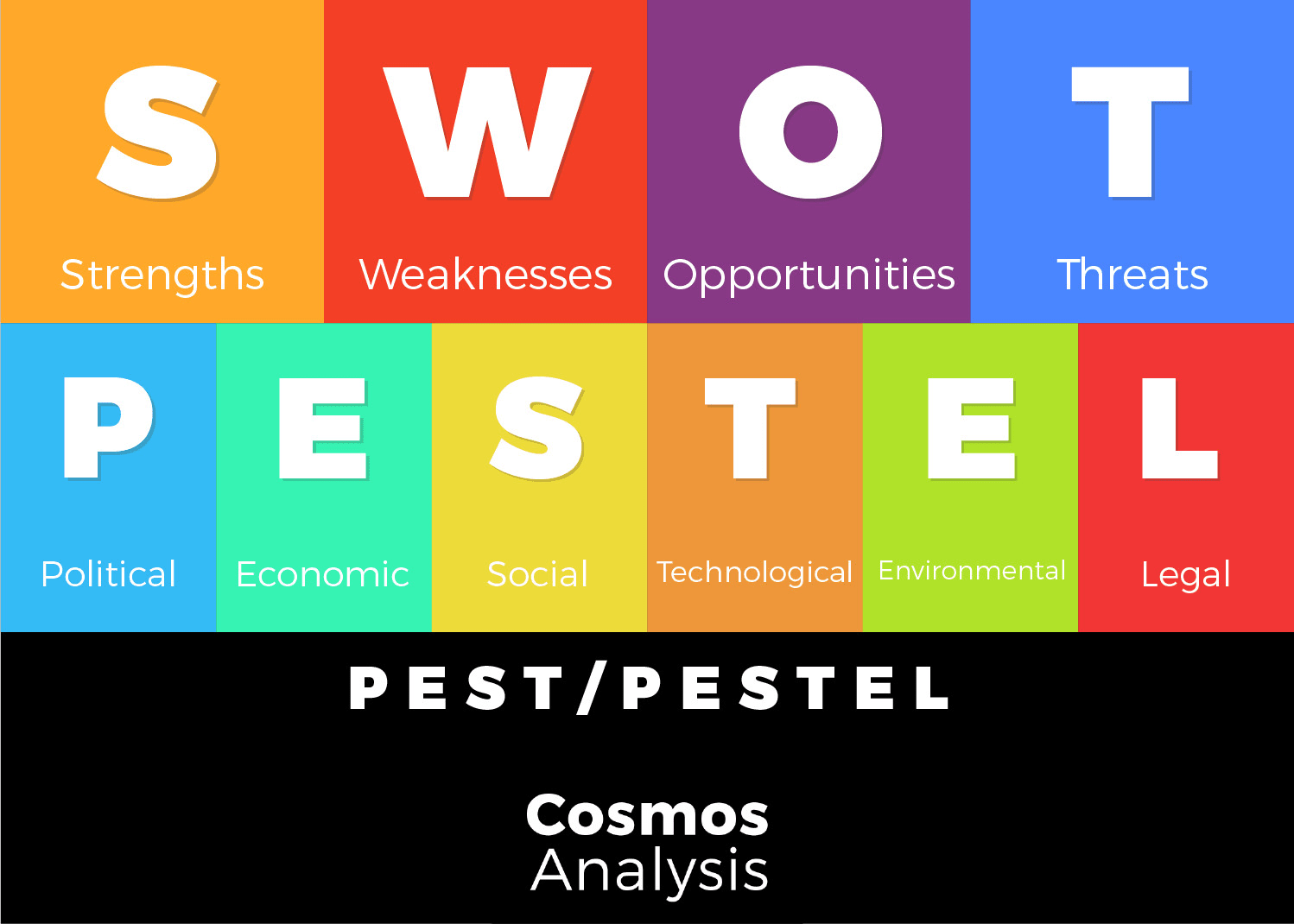A PESTEL analysis is a tool used to evaluate the external factors that can impact an organization. PESTEL stands for Political, Economic, Sociocultural, Technological, Environmental, and Legal. By analyzing these factors, a company can better understand the opportunities and threats it may face in the market. In this essay, we will apply a PESTEL analysis to Tesla, Inc., a company that designs and manufactures electric vehicles, energy storage systems, and solar panel systems.
Political: Tesla operates in a highly regulated industry, and the company's success is heavily influenced by government policies and regulations. In the United States, the government has provided financial incentives for consumers to purchase electric vehicles, which has helped Tesla to grow its market share. However, the company also faces regulatory challenges in other countries, such as China, where the government has imposed stricter regulations on foreign companies operating in the country. Tesla has also faced criticism from some governments for its impact on the environment, as the production and use of electric vehicles still requires the extraction and use of finite resources, such as lithium and cobalt.
Economic: The economic environment is an important factor for Tesla, as it affects consumer demand for the company's products. In recent years, the global economy has experienced significant volatility, which can impact the demand for luxury goods such as Tesla's electric vehicles. Additionally, Tesla's expansion into new markets, such as Europe and Asia, has been impacted by economic conditions in those regions. The company's financial performance is also influenced by the cost of raw materials and the availability of financing.
Sociocultural: The sociocultural environment plays a role in shaping consumer attitudes towards electric vehicles and renewable energy. In many developed countries, there is increasing demand for environmentally-friendly products and services, which has benefited Tesla. However, in some markets, there may be a cultural resistance to electric vehicles or a lack of infrastructure to support them.
Technological: Technology is a key factor in the success of Tesla, as the company relies on advances in electric vehicle technology and renewable energy storage to stay competitive. Tesla has made significant investments in research and development, and the company has a reputation for being a leader in electric vehicle technology. However, Tesla also faces competition from other companies that are investing in electric and autonomous vehicle technology, as well as challenges in scaling production to meet demand for its products.
Environmental: The environmental impact of electric vehicles and renewable energy is an important factor for Tesla. The company has faced criticism for the environmental impact of the production of its vehicles, as well as the disposal of batteries and other components. Tesla has made efforts to reduce its environmental impact, such as using renewable energy sources to power its manufacturing facilities, but the company will need to continue to address these issues as it expands.
Legal: Tesla operates in a complex legal environment, with a range of laws and regulations that impact the company's operations. These include intellectual property laws, employment laws, and environmental regulations. The company has faced legal challenges, such as lawsuits related to workplace safety and vehicle recalls, and it will need to continue to navigate these challenges as it grows.
In conclusion, a PESTEL analysis of Tesla highlights the complex external factors that can impact the company's operations and performance. Political, economic, sociocultural, technological, environmental, and legal factors all play a role in shaping the market for electric vehicles and renewable energy, and Tesla will need to continue to adapt to these changing conditions as it grows.
